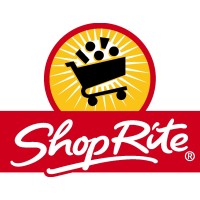
ShopRite
A registered trademark of retailer-owned cooperative Wakefern Food Corp., ShopRite serves more than 6 million customers via more than 250 ShopRite locations throughout NJ, NY, PA, CT, DE & MD



A registered trademark of retailer-owned cooperative Wakefern Food Corp., ShopRite serves more than 6 million customers via more than 250 ShopRite locations throughout NJ, NY, PA, CT, DE & MD

Greggs is a leading food-on-the-go retailer with over 2,400 shops nationwide and serving over six million customers a week. We stand for great tasting, freshly prepared food that our customers can trust, at affordable prices and aim to become the customers’ favourite for food-on-the-go. With ambitions to grow to over 3,0000 shops nationwide and ownership of our supply chain, we are in a unique position to make quality, freshly prepared food accessible to anyone, anywhere. Our supply network... is being reshaped to support growth and compete more effectively in the food-on-the-go market. We're investing in a major programme to support shop expansion substantially beyond 3,000 outlets in the UK. Our shops... are being refurbished and relocated in locations away from high streets such as retail and industrial parks, motorway service stations and travel hubs, to meet the demands of busy food-on-the-go customers. Our franchise model continues to offer opportunities for further growth in non-high street locations. Our product offer... is differentiated by the way we freshly prepare food in our shops each day and offer customers outstanding value for good quality, great tasting food-on-the-go, at any time of day. For more on how to join us at Greggs please visit careers.greggs.co.uk
Security & Compliance Standards Overview












No incidents recorded for ShopRite in 2025.
No incidents recorded for Greggs in 2025.
ShopRite cyber incidents detection timeline including parent company and subsidiaries
Greggs cyber incidents detection timeline including parent company and subsidiaries
Last 3 Security & Risk Events by Company
Angular is a development platform for building mobile and desktop web applications using TypeScript/JavaScript and other languages. Prior to versions 19.2.16, 20.3.14, and 21.0.1, there is a XSRF token leakage via protocol-relative URLs in angular HTTP clients. The vulnerability is a Credential Leak by App Logic that leads to the unauthorized disclosure of the Cross-Site Request Forgery (XSRF) token to an attacker-controlled domain. Angular's HttpClient has a built-in XSRF protection mechanism that works by checking if a request URL starts with a protocol (http:// or https://) to determine if it is cross-origin. If the URL starts with protocol-relative URL (//), it is incorrectly treated as a same-origin request, and the XSRF token is automatically added to the X-XSRF-TOKEN header. This issue has been patched in versions 19.2.16, 20.3.14, and 21.0.1. A workaround for this issue involves avoiding using protocol-relative URLs (URLs starting with //) in HttpClient requests. All backend communication URLs should be hardcoded as relative paths (starting with a single /) or fully qualified, trusted absolute URLs.
Forge (also called `node-forge`) is a native implementation of Transport Layer Security in JavaScript. An Uncontrolled Recursion vulnerability in node-forge versions 1.3.1 and below enables remote, unauthenticated attackers to craft deep ASN.1 structures that trigger unbounded recursive parsing. This leads to a Denial-of-Service (DoS) via stack exhaustion when parsing untrusted DER inputs. This issue has been patched in version 1.3.2.
Forge (also called `node-forge`) is a native implementation of Transport Layer Security in JavaScript. An Integer Overflow vulnerability in node-forge versions 1.3.1 and below enables remote, unauthenticated attackers to craft ASN.1 structures containing OIDs with oversized arcs. These arcs may be decoded as smaller, trusted OIDs due to 32-bit bitwise truncation, enabling the bypass of downstream OID-based security decisions. This issue has been patched in version 1.3.2.
Suricata is a network IDS, IPS and NSM engine developed by the OISF (Open Information Security Foundation) and the Suricata community. Prior to versions 7.0.13 and 8.0.2, working with large buffers in Lua scripts can lead to a stack overflow. Users of Lua rules and output scripts may be affected when working with large buffers. This includes a rule passing a large buffer to a Lua script. This issue has been patched in versions 7.0.13 and 8.0.2. A workaround for this issue involves disabling Lua rules and output scripts, or making sure limits, such as stream.depth.reassembly and HTTP response body limits (response-body-limit), are set to less than half the stack size.
Suricata is a network IDS, IPS and NSM engine developed by the OISF (Open Information Security Foundation) and the Suricata community. In versions from 8.0.0 to before 8.0.2, a NULL dereference can occur when the entropy keyword is used in conjunction with base64_data. This issue has been patched in version 8.0.2. A workaround involves disabling rules that use entropy in conjunction with base64_data.